First Citizens home loans offer a reliable path to homeownership for buyers at every stage. Whether you’re purchasing your first home or upgrading to a larger space, choosing the right loan matters. With so many options available, it’s easy to feel overwhelmed. That’s why understanding your choices and how they align with your financial goals is the first step to making a smart decision.
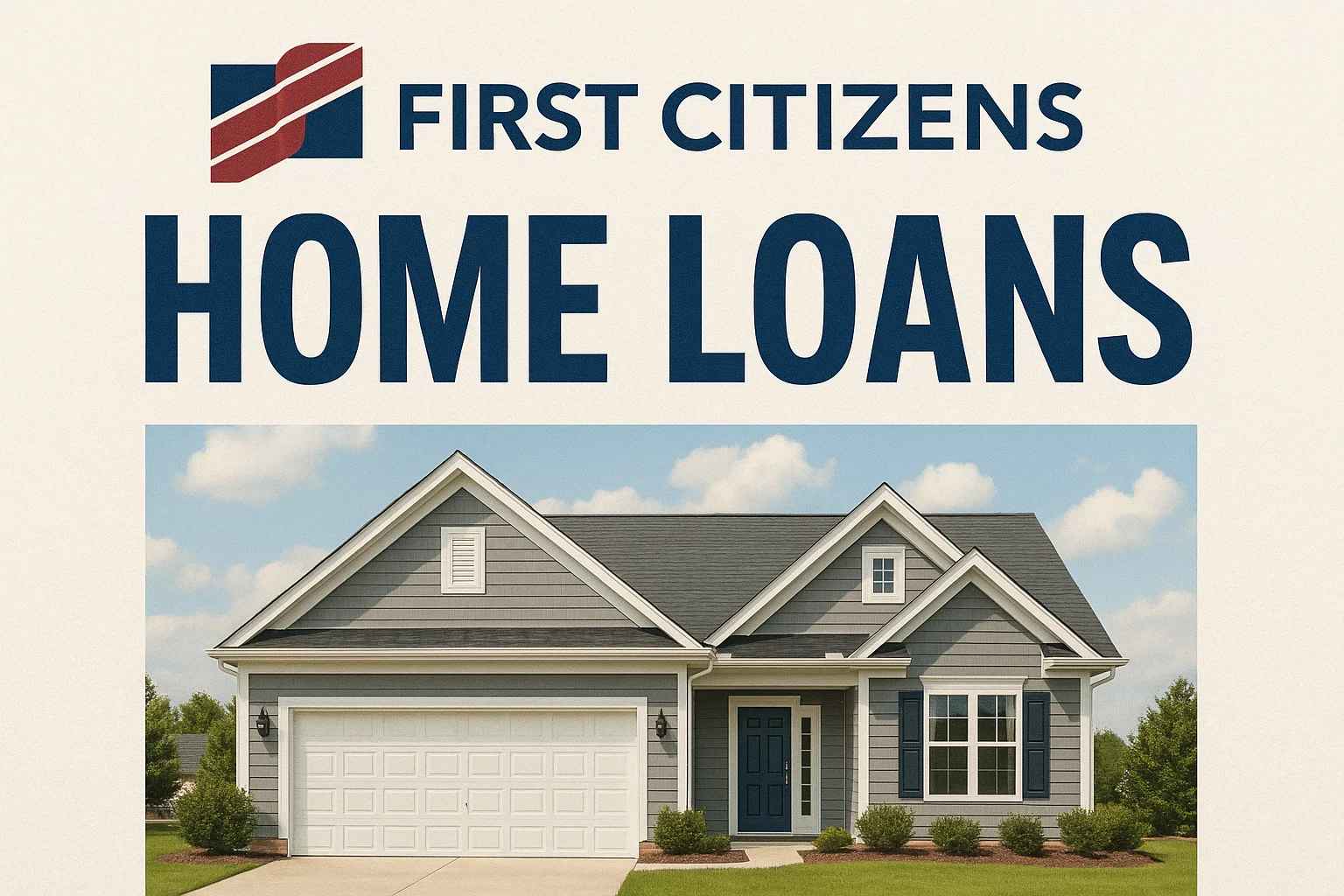
Fortunately, First Citizens Bank makes that process easier. They provide a range of mortgage options tailored to different needs. More importantly, their team works with you to ensure you’re not just getting a loan but you’re getting the best loan for your needs. Let’s explore what makes their offerings stand out.
General Information about First Citizens Home Loans
Before diving into specific First Citizens home loan types, it’s necessary to understand how these loans work, what they offer, and why they continue to be a trusted choice for many. The following overview breaks down the fundamentals to help you get started with clarity and confidence.
Overview of Home Loans
A home loan (mortgage) is a specific type of loan used to buy or refinance a house, land, or other real estate. Most people rely on mortgages to afford their homes, since paying the full price upfront is rarely possible.
When you take out a mortgage, you agree to repay the lender over time, usually with interest. This repayment period, called the loan term, can range from a few years to several decades. The interest you pay represents the cost of borrowing money. Interest rates differ based on many factors, such as the state of the economy and your personal credit profile.
Each monthly payment includes two parts. One part goes toward reducing the original loan balance. The other covers the interest. Some loans also include property taxes and homeowners insurance in the monthly total.
Importantly, most home loans are secured loans. That means the property you buy acts as collateral. If you fail to make payments, the lender can reclaim the home through foreclosure. On the other hand, once you finish paying off the loan, you fully own the property and the lender no longer holds any claim.

Overview of First Citizens Home Loans
First Citizens home loans, similar to other major mortgage offerings. Moreover, they are designed to be flexible, competitive, and tailored to your financial goals. With the aim to meet a wide range of borrower needs while keeping the process clear and manageable, First Citizens Bank offers different home loan options:
-
Fixed-rate mortgages
-
Adjustable-rate mortgages (ARMs)
-
Home Construction Loans
-
Renovation Loans
-
Medical Professional Mortgages
-
FHA loans
-
VA loans
-
USDA Loans
-
Jumbo loans
-
Mortgage Refinancing
-
Special Purpose Credit Program
Beyond loan variety, First Citizens stands out for its strong customer service and community focus. Borrowers often praise the bank for offering personalized guidance, online tools, and responsive support at every stage of the mortgage process. Whether you’re a seasoned buyer or new to the housing market, you’ll find expert help to make confident decisions.
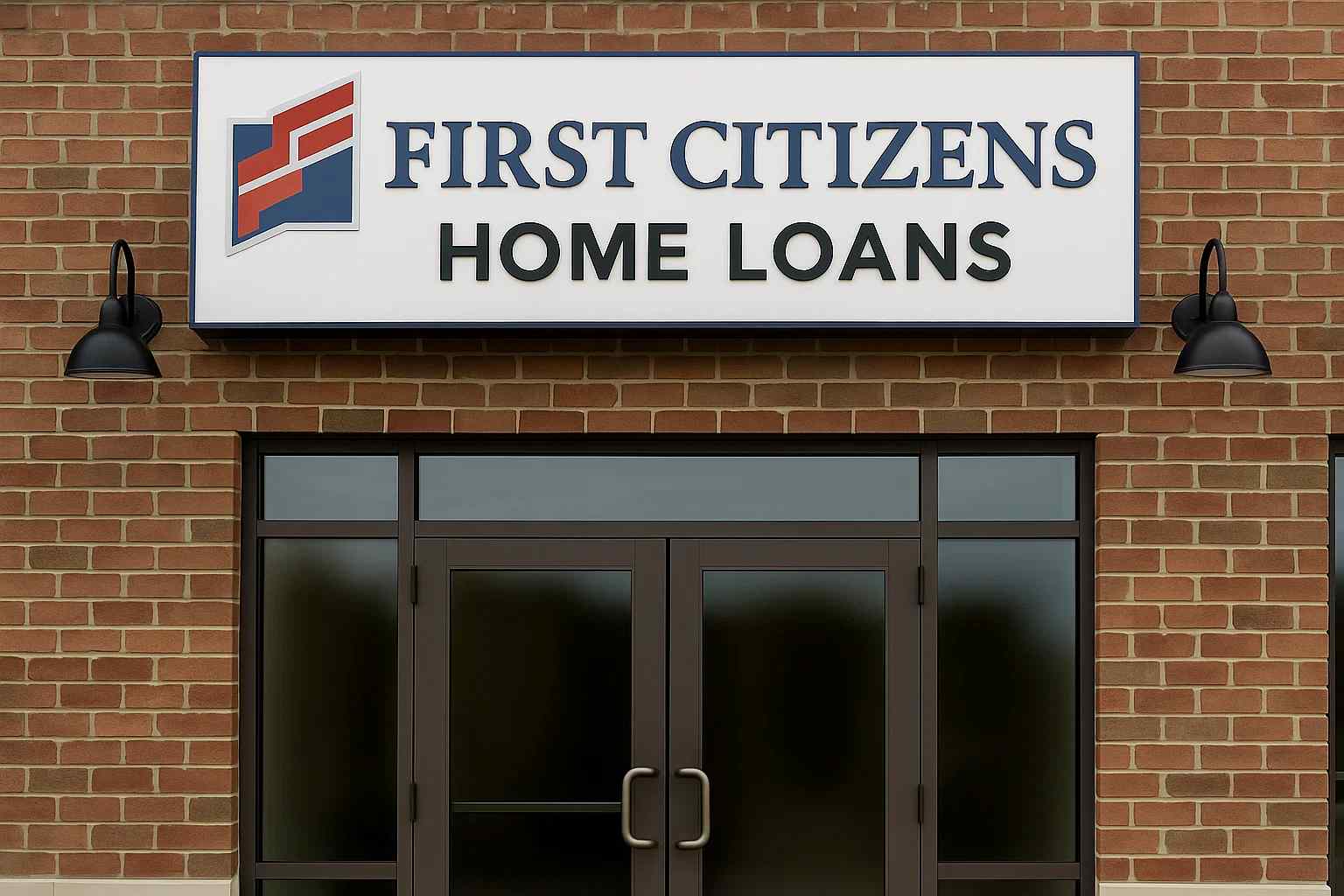
First Citizens Home Loan Options
When exploring First Citizens home loans, it’s important to understand the range of options available and how each one supports different financial goals. From stable long-term plans to flexible short-term strategies, First Citizens offers tailored solutions to match your unique situation.
Adjustable-rate mortgage (ARM)
An adjustable-rate mortgage (ARM) is a type of First Citizens home loan that begins with a low introductory interest rate, often below market levels. Over time, this rate can change based on market conditions. Consequently, your monthly payments may increase or decrease.
First Citizens adjustable-rate loans offer the flexibility many borrowers need. After an initial fixed period, your interest rate adjusts at regular intervals. These changes follow a set schedule and reflect current market trends. You can choose from several loan terms and adjustment options. Therefore, you can align the loan with your goals.
Moreover, to reduce risk, First Citizens includes interest rate caps. These protect you from sudden and extreme increases in rates. Additionally, you can also make payments online using a First Citizens checking account, which adds convenience. If you qualify for down payment assistance, your upfront cost may be much lower.
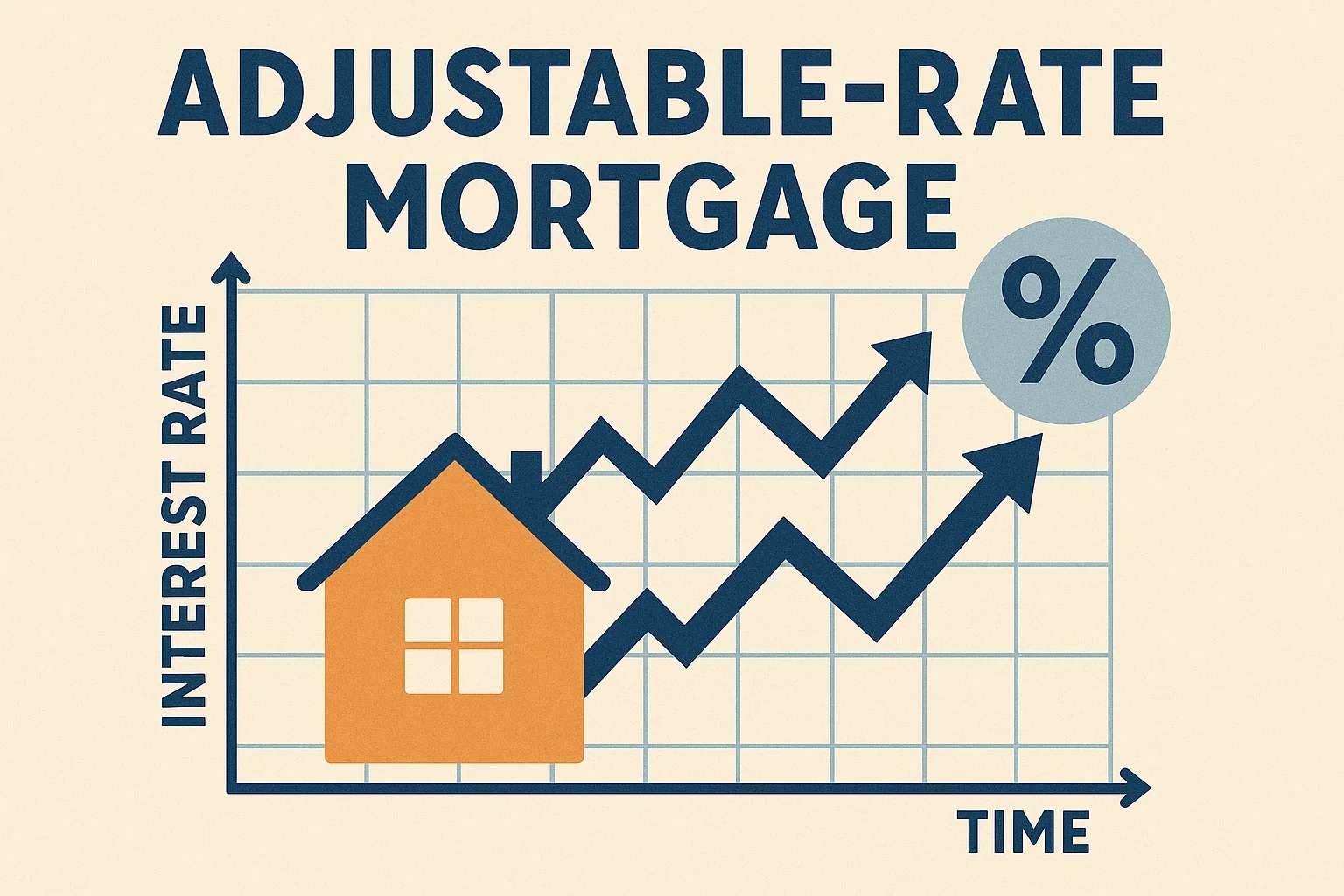
For example, with a $500,000 home and a $50,000 down payment, your starting monthly payment could be around $4,513.36. This includes principal, interest, property taxes, insurance, and HOA fees.
However, these payments can change over time. In the first seven years, the principal and interest remain steady at $4,019.61. Starting in 8th year, they begin to adjust dropping gradually to $3,535.17 by year 15. This variation shows how ARMs respond to market conditions.
To plan wisely, use the First Citizens ARM calculator. It helps you see how your monthly costs could shift and whether this type of loan fits your budget goals.
Fixed-rate Mortgage
With fixed-rate First Citizens home loans, you can lock in a stable interest rate for up to 30 years. While mortgage rates may shift, your monthly payments stay consistent.
A fixed-rate mortgage from First Citizens gives you peace of mind with predictable monthly payments. Unlike adjustable loans, your interest rate stays the same from day one. Consequently, you can budget confidently without worrying about future rate hikes.
Furthermore, because you get the flexibility to choose a long-term repayment plan, often up to 30 years, you have lower monthly payments and more time to manage your finances. Moreover, if you qualify for down payment assistance, your upfront cost may be reduced as well. Overall, this loan option offers security, simplicity, and strong support throughout your homebuying journey.
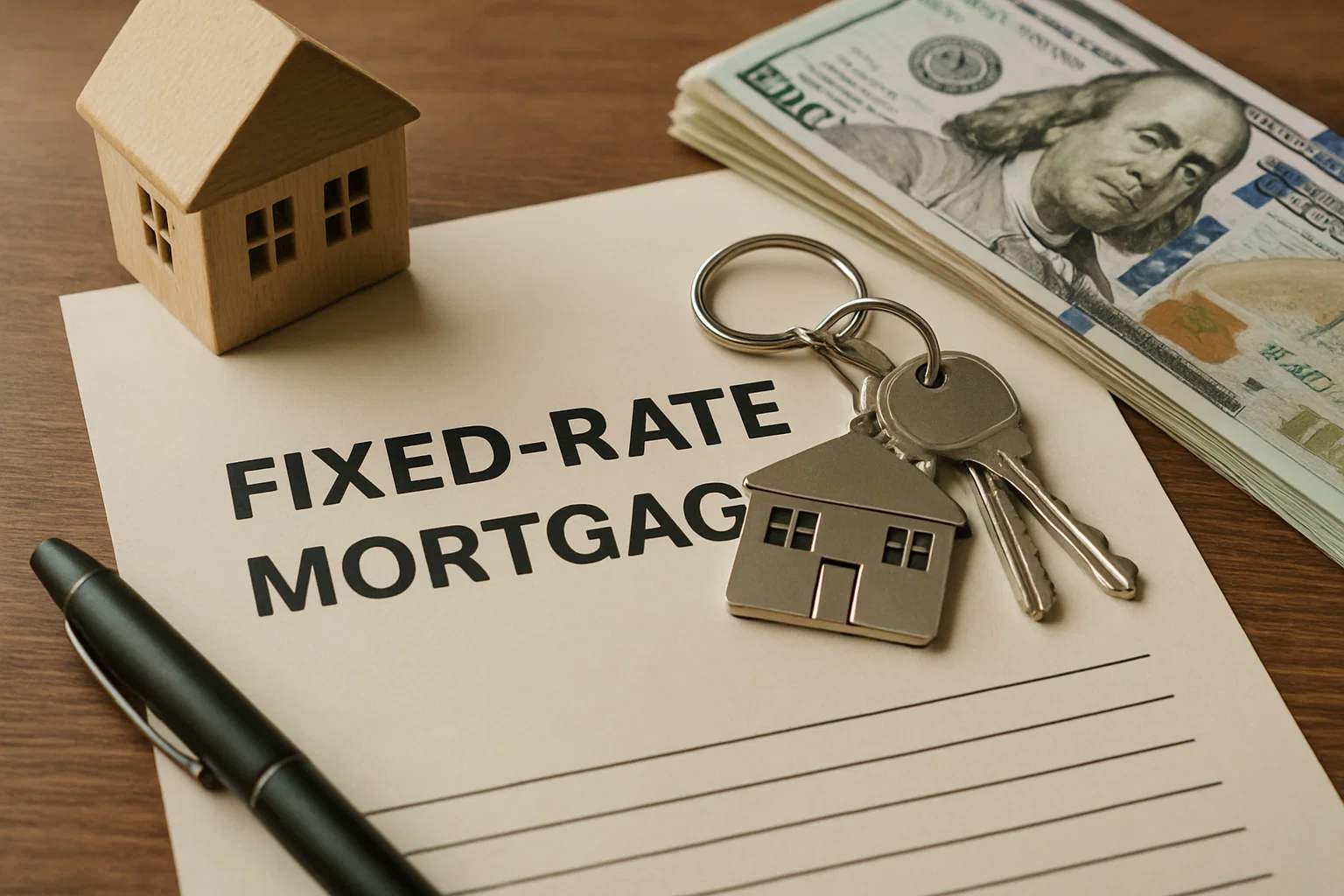
Let’s say you take out a fixed-rate mortgage of $240,000 to buy your new home. Your monthly payment comes to $1,564.35, which includes:
-
$1,049.77 for principal and interest
-
$208.33 for property taxes
-
$156.25 for insurance
-
$150.00 in HOA fees
Because it’s a fixed-rate loan, the total monthly payment doesn’t change. However, how your money is applied does. In the beginning, most of your monthly payment goes toward interest. In the first year, you’ll pay around $7,824.47 in interest but only $4,772.77 toward reducing the loan balance. By 10th year, interest begins to drop to $6,182.34, while your principal payment grows to $6,414.90.
Fast forward to 20th year , and the shift becomes clear. You now pay just $3,687.24 in interest and $8,910.00 toward principal. By the final year (30th year), nearly your entire payment goes toward principal – $12,376.38, while interest falls to only $221.68.
New Home Construction Loans
A new home construction loan is a short-term First Citizens home loan option designed to help you build a residential property from the ground up. Unlike a traditional mortgage, this loan typically lasts up to one year and covers construction costs during that period. Because of its short duration and increased risk, it usually carries a higher interest rate.
Before approval, borrowers must submit a detailed construction plan, a realistic budget, and a clear timeline. Once the loan is approved, the lender distributes funds directly to the builder in stages based on project milestones. During construction, borrowers make interest-only payments, which helps reduce financial pressure while the home is still being built.
With a construction-to-permanent loan from First Citizens, you benefit from one simplified closing. Once construction is finished, the loan automatically converts into a traditional mortgage so you can save both time and closing costs. Moreover, during the build, you only make interest-only payments, which helps manage your cash flow while the home is still under construction. This is especially helpful if you’re balancing other obligations like personal loans.
Furthermore, loan amounts are available up to $3 million, with flexible options including both fixed and adjustable rates. Whether you’re building a primary residence or a second home, you can customize the loan to suit your needs. In addition, First Citizens also offers special financing programs for medical professionals, making it an ideal choice for buyers with unique financial profiles.
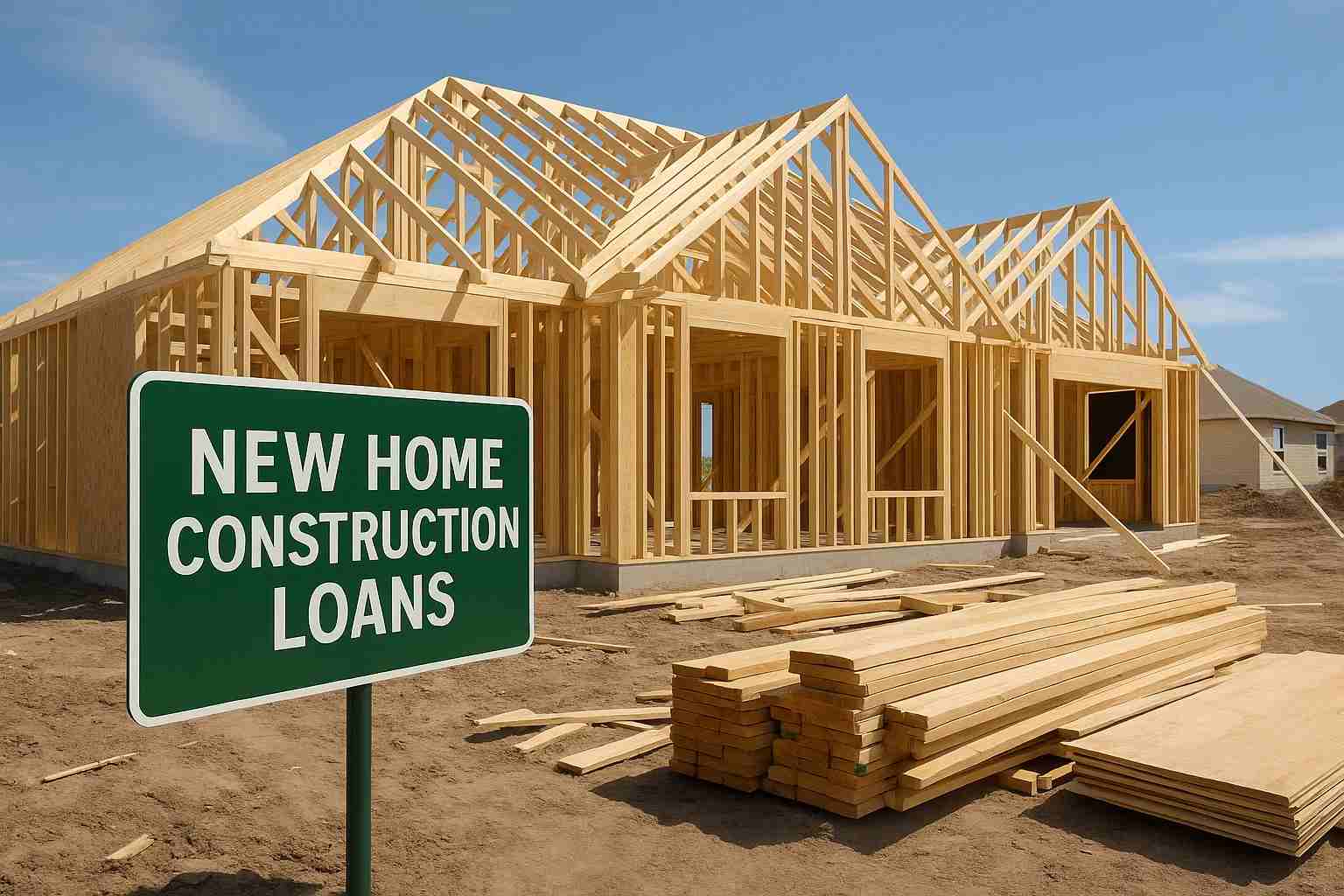
Jumbo Loans
A jumbo loan is a type of First Citizens home loans that allows you to borrow more than the loan limits set by the Federal Housing Administration (FHA). These loans are designed for homebuyers who need financing beyond what traditional conforming loans can offer. If you’re purchasing a high-value or luxury property, a jumbo loan provides the additional borrowing power required to close the deal.
With a jumbo loan from First Citizens, you can borrow beyond the limits set by the Federal Housing Finance Agency, up to $5 million. Moreover, despite the larger amount, you may still qualify for a competitive interest rate, helping you save on total borrowing costs over time. In addition, you also have the option to customize your loan structure by choosing between fixed or adjustable rates, depending on your financial goals.
For added support, down payment assistance may be available, making it easier to secure a high-value home without sacrificing cash flow for other needs like credit card payments. For professionals with substantial income but complex financial profiles, a jumbo loan provides both flexibility and borrowing power.

Medical Professional Mortgages
A medical professional mortgage is a specialized First Citizens home loan designed for doctors, nurses, and other healthcare workers. It addresses the unique financial challenges in the medical field, such as: student debt, limited employment history, and fluctuating income.
These loans often feature lower down payment requirements, helping borrowers secure a home with less upfront cash. They also offer flexible debt-to-income ratios, allowing you to qualify even with higher student loan balances. Additionally, there are programs reducing or waiving mortgage insurance premiums to cut monthly costs.
Not only that, First Citizens also use specialized underwriting criteria, accepting contract-based income, future earnings, or signed employment offers. The loan approval process is often faster and more streamlined, making it easier to close on time. Moreover, higher loan limits are available so medical professionals can access to more competitive properties without needing a jumbo loan.

Mortgage Refinancing
Mortgage refinancing is the process of taking out a new First Citizens home loan, typically at a lower interest rate to replace your existing mortgage. The new loan pays off the original one and often provides better terms for the borrower.
Refinancing your mortgage can offer several key benefits. First, it may help you pay off your mortgage faster by lowering your interest rate or shortening your loan term. This makes it easier to build equity and reduce total interest paid. Moreover, you can also consolidate other debts like high-interest personal loans into your mortgage, combining multiple payments into one with a lower interest rate. Finally, refinancing allows you to gain stability by switching from an adjustable-rate loan to a fixed-rate mortgage. Therefore, you can avoid future rate increases and manage your budget more confidently.
Imagine you currently have a mortgage with a loan amount of $210,000 and a monthly payment of $1,800. You’re considering refinancing into a new loan of $211,500, which raises your monthly payment slightly to $1,842.3 – an increase of $42.39 per month.

At first glance, it seems like you’re paying more each month. However, let’s look at the long-term impact:
-
Under your current loan, the total interest you’ll pay over the life of the loan is $152,275.39, bringing the total loan cost to $362,275.39.
-
With the new loan, total interest drops to $120,130.88, and the overall loan cost becomes $331,630.88.
Despite the higher monthly payment, you save more than $30,000 over the life of the loan thanks to lower interest. This example shows that refinancing can still be a smart move if your goal is to reduce long-term debt, gain better loan terms, or consolidate other obligations even if your monthly cost increases slightly.
Renovation Loans
A home renovation loan allows homeowners to finance repairs, remodels, or major upgrades to their property. These loans come in various forms and are tailored to meet each borrower’s specific goals. You can choose between fixed or variable interest rates, with flexible terms that typically range from 15 to 30 years.
In many cases, a renovation loan replaces your existing First Citizens home loan so you make just one monthly payment instead of juggling separate debts. Whether you’re updating a kitchen, adding a room, or improving energy efficiency, this loan can help you invest in your home’s value and comfort.
Home renovation loans from First Citizens offer flexible, stress-free financing for your next project. You can explore fixed or variable rates with no prepayment penalties, giving you options that truly fit your needs. Particularly, if you’re a healthcare professional, you may qualify for special financing programs tailored to your career. Furthermore, these loans also let you go beyond traditional limits, offering up to $3 million in funding for larger renovations. Best of all, First Citizens helps streamline the process by paying your builder directly then you can focus on your home, not the paperwork.
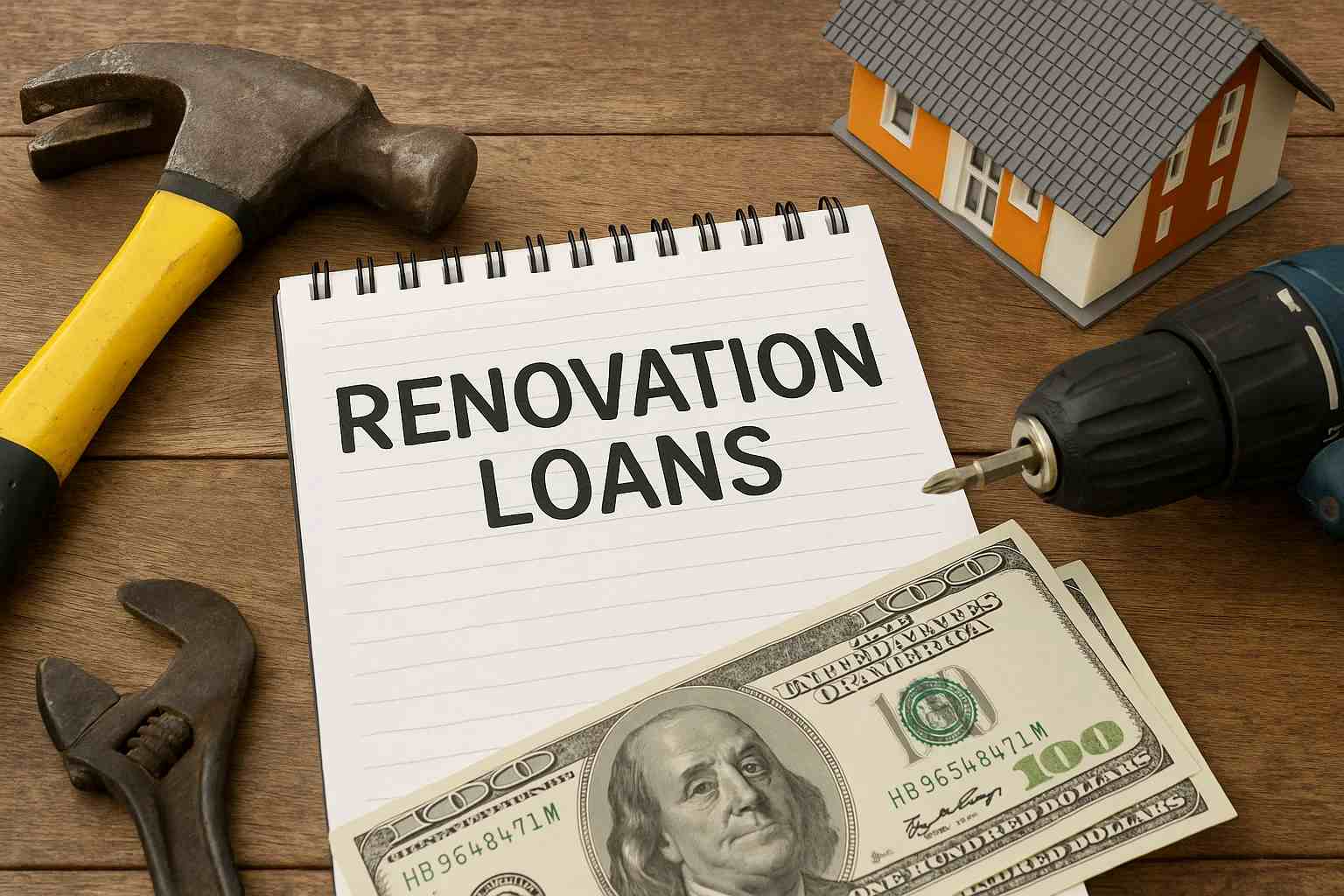
Government Home Loans
Government-backed mortgages are First Citizens home loans insured or guaranteed by federal agencies, making them more accessible to borrowers who may not qualify for conventional loans.
The most common option is the FHA loan, which allows for lower credit scores and smaller down payments. Therefore, it’s ideal for first-time buyers. On the other hand, VA loans, backed by the Department of Veterans Affairs, offer zero down payment, no private mortgage insurance, and competitive rates exclusively for eligible service members, veterans, and their spouses.
In addition, for buyers in rural or suburban areas, USDA loans provide 100% financing, reduced interest rates, and flexible credit guidelines, targeting households with low to moderate incomes. These government-backed solutions offer a path to ownership that’s more accessible, reducing the need for high-risk options and instead encouraging long-term investing in home equity and financial stability.

Discover the Best First Citizen Home Loan for Your Needs
There are a wide range of First Citizen home loans. Let’s explore methods to find loan type fitting your goals, lifestyle, and financial future best.
Assess your income, credit score, and financial goals.
Before selecting a First Citizens home loan, it’s important to take a closer look at your income, credit score, and overall financial goals. These core factors will determine not only what you qualify for but also how favorable your loan terms will be.
For example, a higher credit score can help you secure a lower interest rate. On the other hand, a steady income shows lenders that you can comfortably manage monthly payments. If you’re unsure where you stand, start by reviewing your credit report and calculating your debt-to-income ratio.
Use online calculators or speak with a loan advisor
To get a clearer picture, take advantage of First Citizens’ online mortgage calculators. These tools let you estimate monthly payments, compare different First Citizens home loan types, and assess affordability based on your current budget.
For more tailored advice, consider speaking with a First Citizens loan advisor, who can guide you through your options and help you prepare the necessary documents for pre-qualification. This guidance is especially useful if you’re balancing home buying with other financial commitments like managing investments, or avoiding high-risk options such as payday loans.
Consider Future Plans
Also, think about your future plans. Are you planning to stay in the home for many years, or do you expect to move within a shorter timeframe? If you’re in it for the long haul, a fixed-rate mortgage may offer the stability you need. On the other hand, if you plan to sell or refinance within five to ten years, an adjustable-rate mortgage (ARM) with a lower introductory rate might make more sense.
Ultimately, choosing the right First Citizen home loan starts with understanding your own financial picture and matching it to the most suitable loan structure. The more clarity you have upfront, the easier it will be to move forward with confidence.
The First Citizens Home Loan Application Process
Applying for a mortgage may seem overwhelming, but First Citizens home loans make the process clear and manageable. From initial prequalification to final closing, each step is designed to guide you with expert support and flexible tools. Here’s how the application process works with each loan types so you can move forward with confidence.
Adjustable-rate Mortgages & Fixed-rate Loans
Step 1: Get Prequalified
Start by getting prequalified to estimate how much you can borrow. This helps you shop for homes with confidence.
Step 2: Connect with a Mortgage Banker
A loan expert will contact you to explain your options, answer questions, and guide you through the adjustable-rate loan process.
Step 3: Apply for an ARM Loan
When you’re ready to apply for a home loan, be prepared to provide key personal and financial details:
- Social Security number
- Employer contact information
- Estimated income, assets and liabilities
- Details on the property you’re interested in mortgaging
Once you’ve found a home and finished preparation, complete your application to finalize financing and move one step closer to ownership.
Home construction Loans
Before applying for a new construction loan, it’s important to plan ahead and gather key information. Follow these three steps to get started:
Step 1: Find a Builder
You’ll need to have a licensed builder in place before applying. Make sure your construction plans are finalized and ready to go.
Step 2: Gather Your Information
Collect the signed building contract, estimated costs, timeline details, and proof of the builder’s credentials. This documentation will be essential for approval.
Step 3: Get Pre-Qualified
Connect with a First Citizens lending expert to understand your loan options. Pre-qualification helps determine how much you can borrow and sets realistic expectations for your budget.
Jumbo Loans
Step 1: Assess Your Readiness
Start by speaking with a jumbo loan mortgage advisor. Together, you’ll review your financial readiness, discuss terms, compare options, and estimate monthly payments.
Step 2: Apply for a Jumbo Mortgage
Use the online platform to complete your application. Submit required documents such as income proof, asset statements, and property details to support your request.
Step 3: Await Loan Approval
The underwriting team will review your file. You may be asked to clarify details or provide additional documentation. Timely responses help avoid delays.
Step 4: Close on Your Loan
Once approved, you’ll receive your closing date and finalize the process with your lender and closing attorney. After signing, your jumbo mortgage is complete and your home is officially yours.
Medical Professional Mortgages
Step 1: Assess Your Readiness
Connect with a mortgage banker to evaluate your loan readiness. Discuss available terms, interest rates, and payment options tailored to healthcare professionals.
Step 2: Apply for a Home Loan
Submit your physician First Citizens home loan application online and provide any supporting documents needed to move forward.
Step 3: Wait for Loan Approval
The underwriting team will review your file and may request additional documentation or clarification. Responding quickly will help keep things on track.
Step 4: Close and Get Your Keys
Once approved, you’ll receive your closing date. Meet with your lender and closing attorney to finalize your mortgage and officially take ownership of your new home.
Mortgage Refinancing
Step 1: Assess Your Refinance Readiness
Start by connecting with a mortgage advisor to review your financial goals. Discuss available loan options, pricing, and potential savings to determine if refinancing is the right move.
Step 2: Apply for Refinancing
Use the online platform to submit your application. Upload supporting documents like income statements, tax returns, and property details.
Step 3: Processing Your Application
The underwriting team will review your file. Be ready to answer questions or provide additional documentation to keep things moving smoothly.
Step 4: Close on Your Refinance
Once approved, you’ll receive a closing date. Meet with your lender and closing attorney to sign final documents and complete your refinanced mortgage.
Home Renovation Loans
Step 1: Evaluate Your Refinance Options
Begin by speaking with a mortgage advisor to determine if refinancing aligns with your financial goals. You’ll review current rates, loan terms, payment options, and potential costs.
Step 2: Submit Your Application
Complete the refinancing application using the online system. Be sure to include all necessary documents, such as income verification and property information.
Step 3: Wait for Review
During this stage, the underwriting team will assess your application and documents. You may be asked for clarifications or additional information to complete the review.
Step 4: Finalize the Refinance
Once approved, you’ll be given a closing date. Meet with your lender and closing attorney to sign the final paperwork and officially complete the refinance.
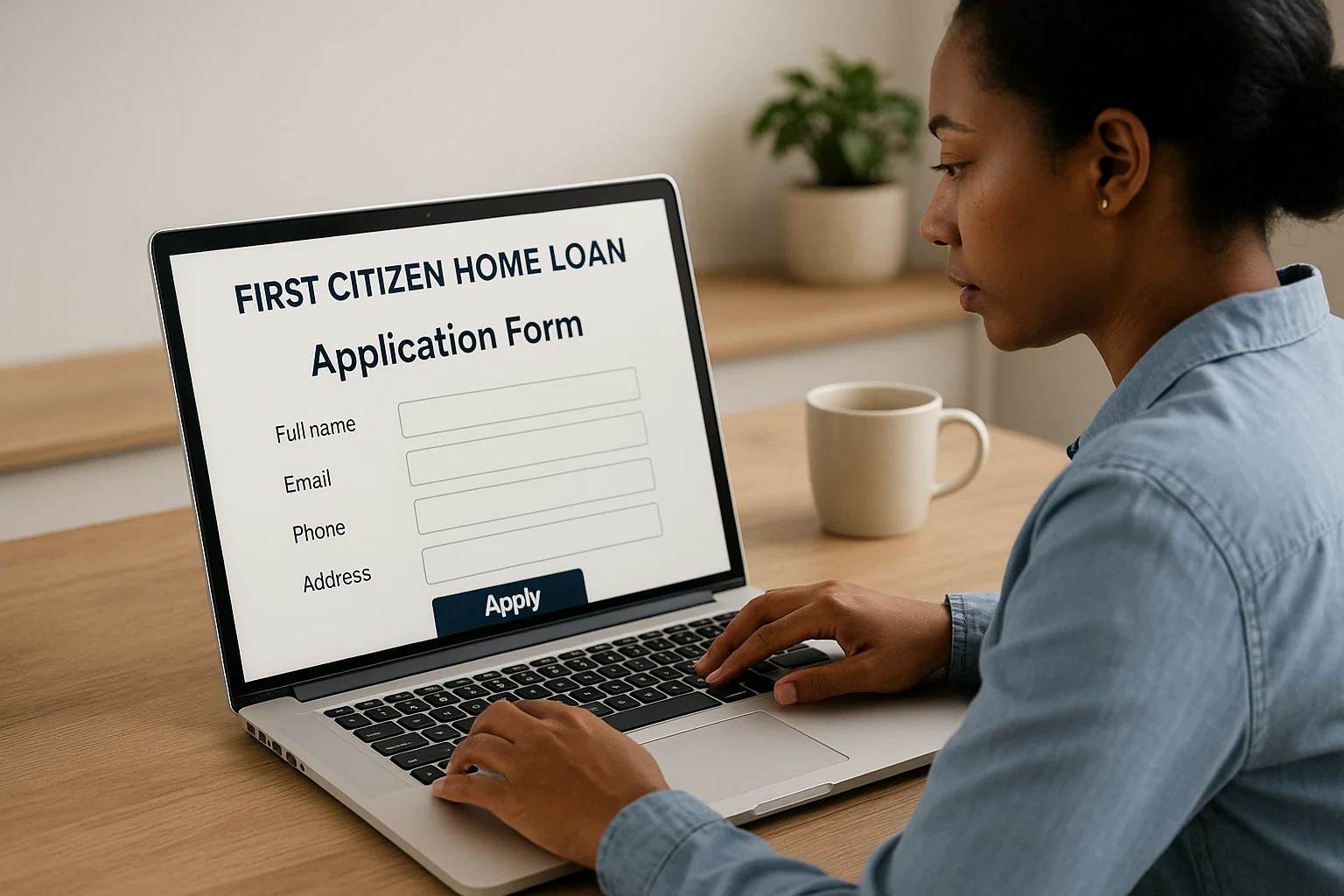
With a wide variety of First Citizens home loan options, there’s a tailored solution for every stage of life. By understanding your financial goals and exploring what First Citizens offers, you can confidently take the next step toward owning, upgrading, or refinancing your home with the right support.
